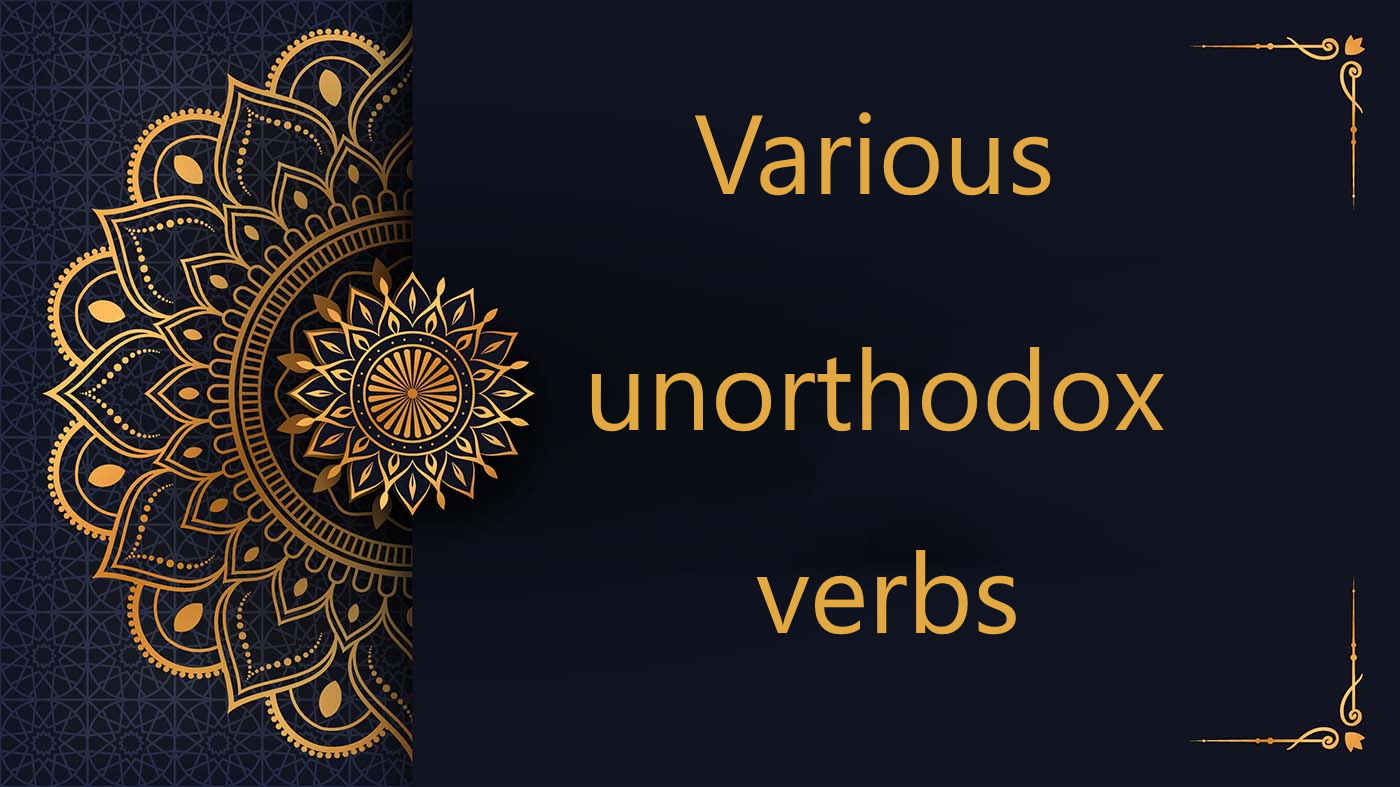
It is employed exclusively in the perfect tense but conveys the meaning of the imperfect. Similar to كَانَ, the noun or adjective following لَيْسَ will be in the accusative case (الْمَنْصُوبُ).
Here’s the past tense conjugation of لَيْسَ:
Singular
لَيْسَ
Dual
لَيْسَا
Plural
لَيْسُوْا
Singular
لَيْسَتْ
Dual
لَيْسَتَا
Plural
لَسْنَ
Singular
لَسْتَ
Dual
لَسْتُمَا
Plural
لَسْتُمْ
Singular
لَسْتِ
Dual
لَسْتُمَا
Plural
لَسْتُنَّ
Singular
لَسْتُ
Dual
–
Plural
لَسْنَا
Examples:
وَيَقُولُ الَّذِينَ كَفَرُوا لَسْتَ مُرْسَلًا
And those who have disbelieved say, “You are not a messenger.” (11:43)
وَلَا تَقُولُوا لِمَنْ أَلْقَىٰ إِلَيْكُمُ السَّلَامَ لَسْتَ مُؤْمِنًا
and do not say to one who gives you [a greeting of] peace “You are not a believer,” (4:94)
إِنَّ عِبَادِي لَيْسَ لَكَ عَلَيْهِمْ سُلْطَانٌ
Indeed, My servants – no authority will you have over them (15:42)
يَا نِسَاءَ النَّبِيِّ لَسْتُنَّ كَأَحَدٍ مِّنَ النِّسَاءِ
O wives of the Prophet, you are not like anyone among women. (33:32)
Note: When a verbless sentence is negated with لَيْسَ and starts with the preposition بِ, the predicate will adopt the genitive case.
Examples:
أَلَيْسَ اللَّـهُ بِأَحْكَمِ الْحَاكِمِينَ
Is not Allah the most just of judges? (95:8)
أَلَيْسَ ذَٰلِكَ بِقَادِرٍ عَلَىٰ أَن يُحْيِيَ الْمَوْتَىٰ
Is not that [Creator] Able to give life to the dead? (75:40)
أَلَيْسَ اللَّـهُ بِكَافٍ عَبْدَهُ
Is not Allah sufficient for His Servant [Prophet Muhammad]? (39:36)
“The verb نِعْمَ conveys praise, while بِئْسَ implies blame. Similar to لَيْسَ, these verbs are found only in the past tense but convey the sense of the imperfect tense. They are restricted to the third person form. The feminine counterpart for نِعْمَ is نِعْمَتْ, and for بِئْسَ, it’s بِئْسَتْ.
Examples:
وَوَهَبْنَا لِدَاوُودَ سُلَيْمَانَ ۚ نِعْمَ الْعَبْدُ ۖ إِنَّهُ أَوَّابٌ
And to David We gave Solomon. An excellent servant, indeed he was one repeatedly turning back [to Allah]. (38:30)
وَإِن تَوَلَّوْا فَاعْلَمُوا أَنَّ اللَّـهَ مَوْلَاكُمْ ۚ نِعْمَ الْمَوْلَىٰ وَنِعْمَ النَّصِيرُ
But if they turn away – then know that Allah is your protector. Excellent is the protector, and Excellent is the helper. (8:40)
وَنِعْمَ أَجْرُ الْعَامِلِينَ
and excellent is the reward of the [righteous] workers. (3:136)
بِئْسَ الشَّرَابُ وَسَاءَتْ مُرْتَفَقًا
Wretched is the drink, and evil is the resting place. (18:29)
لَبِئْسَ الْمَوْلَىٰ وَلَبِئْسَ الْعَشِيرُ
how wretched the protector and how wretched the associate. (22:13)
جَهَنَّمَ يَصْلَوْنَهَا ۖ وَبِئْسَ الْقَرَارُ
[It is] Hell, which they will [enter to] burn, and wretched is the settlement. (14:29)
Verbs that articulate amazement over something positive or negative follow two distinct patterns: مَا أَفْعَلَهُ and أَفْعِلْ بِهِ.
Examples:
قُتِلَ الْإِنسَانُ مَا أَكْفَرَهُ
Cursed is man; how disbelieving is he. (80:17)
فَمَا أَصْبَرَهُمْ عَلَى النَّارِ
How patient they are in pursuit of the Fire! (2:175)
أَبْصِرْ بِهِ وَأَسْمِعْ
How Seeing is He and how Hearing! (18:26)
أَسْمِعْ بِهِمْ وَأَبْصِرْ
How [clearly] they will hear and see ( 19:38)
The aforementioned pattern is one of the most elegant forms present in the Holy Qur’an.
The verb عَسَى conveys meanings such as “it may be,” “perhaps,” “likely,” or “it is hoped.” As an auxiliary verb, it’s used in the perfect tense. When followed by a clause introduced by أَنْ, the subject of that clause also serves as the subject for عَسَى.
Examples:
عَسَىٰ أَن يَكُونُوا خَيْرًا مِّنْهُمْ
perhaps they may be better than them (49:11)
وَعَسَىٰ أَن تَكْرَهُوا شَيْئًا وَهُوَ خَيْرٌ لَّكُمْ ۖ وَعَسَىٰ أَن تُحِبُّوا شَيْئًا وَهُوَ شَرٌّ لَّكُمْ ۗ وَاللَّـهُ يَعْلَمُ وَأَنتُمْ لَا تَعْلَمُو
But perhaps you hate a thing and it is good for you; and perhaps you love a thing and it is bad for you. And Allah Knows, while you know not. (2:216)
وَمِنَ اللَّيْلِ فَتَهَجَّدْ بِهِ نَافِلَةً لَّكَ عَسَىٰ أَن يَبْعَثَكَ رَبُّكَ مَقَامًا مَّحْمُودًا
And from [part of] the night, pray with it as additional [worship] for you; it is expected that your Lord will resurrect you to a praised station. (17:79)
عَسَىٰ رَبُّكُمْ أَن يَرْحَمَكُمْ
[Then Allah said], “It is expected, [if you repent], that your Lord will have mercy upon you. (17:8)
قَالَ عَسَىٰ رَبُّكُمْ أَن يُهْلِكَ عَدُوَّكُمْ
He said, “Perhaps your Lord will destroy your enemy (7:129)
This lesson on Arabic nuances concludes here. Insha’Allah, our subsequent session will delve into the five magnified nouns in Arabic.
Al-dirassa Institute invites you on a linguistic journey with our expert teachers to master the Arabic language. Should you wish to further your studies, we welcome your inquiries.
Discover the experiences of our delighted clients who have thoroughly enjoyed utilizing this standout feature.
Alhamdulillah I‘m very pleased with the arabic and Qur’an lessons I receive from teacher Umm Tasneem and I‘m also content with the al-dirassa administration team who were very quick in answering any questions I had. In a month I progressed a lot and I cannot wait to continue my studies with al-dirassa. May Allah reward everyone at al-dirassa.
Verified review - view original
My Qur’an teacher is fantastic, she teaches me in a loving and kind way where I look forward to the lessons and learn so much. My Arabic teacher is equally as nice and has a lot of patience with me, she has great expertise in the field and I’ve progressed really quickly with her. Thank you Al-dirassa!
Verified review - view original
Don’t want to go through the translation anymore?
30 free minutes with your qualified Egyptian teacher.

Al-dirassa Institute offers you a gift to help you begin your journey to being fluent in Arabic and learning the Quran.

Al-dirassa Institute offers you a gift to help you begin your journey to being fluent in Arabic and learning the Quran.